Fluid & Heat Blog Posts
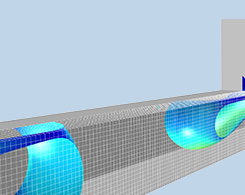
Modeling and Simulation of Multiphase Flow in COMSOL®: Part 1
Multiphase flow can be modeled on scales ranging from fractions of microns to tens of meters. Get an overview of the dispersed and separated multiphase flow models for different types of flow.
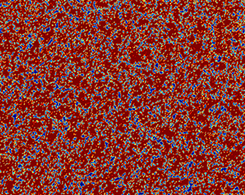
Material Characterization by Means of Simulation
Carbon-based materials, such as synthetic specialty graphites, are found in many industries, including solar, semiconductor, car manufacturing, ceramics, and metallurgy.
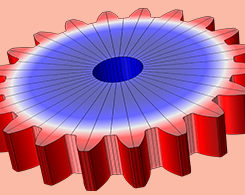
Simulating the Carburization and Quenching of a Steel Gear
Gears are typically carburized and quenched to improve their fatigue durability and wear resistance. Simulation can help determine how these processes affect the gear’s residual stress state.
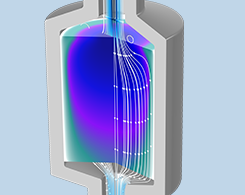
Thermal Equilibrium and Nonequilibrium Heat Transfer in Porous Media
Heat transfer in porous media can occur under thermal equilibrium, such as a rock consisting of different minerals or trapped fluids, or nonequilibrium, like a thermal energy storage (TES) unit.

Verifying a HAMSTAD Benchmark for an Insulated Roof Model
Heat and moisture (HAM) transport is an important area of study for building materials and structures, as it can affect the rate and coverage area of mold growth.
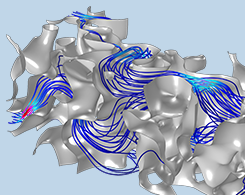
Modeling Darcian and Non-Darcian Flow in Porous Media
Get an introduction to the theory behind modeling flow in porous media, including the Kozeny–Carman, Forchheimer, Ergun, Burke–Plummer, and Navier–Stokes equations.
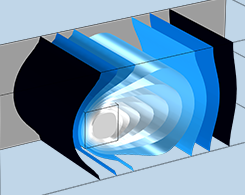
Analyzing the Impact of a Melting Frozen Inclusion
One example of the effects of climate change is the melting of permafrost in northern boreal regions. In this blog post, we show an example of a melting frozen inclusion in a porous medium.
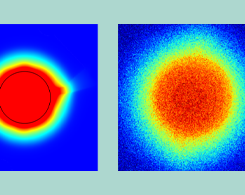
Developing a Silicon MEMS Chip for On-Demand DNA Synthesis
The development of genome editing tools like CRISPR-Cas9 has increased the demand for DNA synthesis technology. Researchers are creating a DNA synthesis platform to broaden horizons in the field.
